Your business may not be located in China, and your customer base may not be Chinese, but like it or not, the economy is global, and coronavirus may already be having an impact on your business. You may have had employees away on overseas holidays, or travelling for business. Even if they haven’t been anywhere near China, they may have been exposed to Coronavirus on planes or in airports, which are filled with people coming and going to and from every part of the globe. Australian businesses are not immune to the threat caused by the virus. While we don’t yet understand the full impact the virus will have, business owners can take action now to help protect their business from the likely impacts of Coronavirus.
Business Continuity
Develop a business continuity plan
Coronavirus could have a significant impact on businesses (particularly small businesses), and could potentially cause disruptions to supply chains, drops in both customer and sales numbers, and cash flow shortages. Now is the time to set a Business Continuity Plan in place, to help prepare for the potential fallout of Coronavirus. Putting business continuity solutions in place now will give you peace of mind that your business will continue to function in the event of a disaster such as Coronavirus.
Start thinking about how your business will address the following questions, so that you can keep essential operations running:
- What is your position as a business? Will you close up shop temporarily, or allow your employees to work remotely?
- What decisions will you need to make at a management level about how you will approach this situation?
- To what extent will your clients still be operating and therefore needing your services?
- Can you make contingency arrangements for potential employee absences to prevent disruptions to services? Perhaps cross-train key staff so that all positions can be covered.
- How will you communicate your business preparedness to your clients?
Timely and honest communication with your staff, suppliers and clients is important, as all need to be made aware of any issues you may have delivering your products and services, and what contingency plans are in place.
Maximise employees’ ability to work from home
Businesses are in a strong position to counter the Coronavirus outbreak by allowing employees to work remotely. Obviously, this is not feasible for every business, as employees need to be physically present in certain fields, but if it’s possible for your employees (particularly those who are unwell or at risk of contracting Coronavirus) to work from home, now might be a good time to look at how you could make this happen. Use it as an opportunity to examine how productive your workers can be from home, and to strengthen your IT infrastructure to allow it to happen.
When creating your plan, consider the following questions:
- Does your business provide remote access to files via VPN or FTP?
- Will you be expecting your staff to access your office servers remotely?
- Will you be allowing remote access to all staff, or just a selected group?
- Is your data stored in the cloud or is it stored on-site?
- Will your internet speeds and VPN configuration allow as many concurrent users as you might have to deal with?
- Do you have a fallback internet connection in case your main link fails?
- Do you run any business systems that are not easily used remotely? If you do, how will you work around that limitation?
- Do you run any systems like tape or hard drive backups that are unable to be run without user intervention on site?
- Are any of your services like mail or file servers in the habit of needing hard resets of hardware, which might not be easily done if your office is inaccessible?
- Could you use a chat-based platform like Slack to connect remote staff to each other? Videoconferencing or Skype meetings are also a good alternative to face-to-face meetings.
- Should you do a network health check to make sure your VPN or FTP services are allocated as much resource as you can give them, so that they can handle a larger load?
- Are file and mail servers operating optimally?
- Can you send some staff off-site with portable hard drives containing large work assets that might be problematic to transfer over VPN or FTP?
- Do your staff have computers at home that will allow them to work remotely, or will you need to send some staff home with their workstations? What is your insurance position if you do this?
- How can you clarify workflow processes to help staff working remotely keep on top of who is working on which version of a file, and which version is most current?
- Are you able to forward your office phones if necessary?
Clarify your position on all of these questions and put plans in place to address any issues which arise, so that your business has the best chance of staying afloat during a difficult period.
General Advice
Look at ways your supply chain may be affected
Do you use products manufactured in or supplied from China? Does your company manufacture products there? Perhaps you use remote workers in China? Examine your supply chain in depth, and you may be surprised that your business does have contact with affected areas in some way. If so, now might be the time to seek alternative suppliers.
Limit unnecessary overseas business travel
Sure, you may have been looking forward to that annual conference in the US, but is it really worth the risk? If it’s not absolutely necessary to travel for work, make the decision to avoid overseas travel at the moment.
Encourage sick employees to stay home
Chances are the employee with a sniffle doesn’t have Coronavirus, but it’s always wisest to be on the safe side, especially if they’ve recently been overseas or had close contact with someone who has. Make it known that employees need to stay home if they’re sick. And encourage employees to keep their vaccinations up to date, as eliminating the spread of other illnesses will reduce pressure on health services by reducing vaccine-preventable diseases.
Set up good hygiene practices at your workplace
- Provide hand sanitiser and sanitising wipes throughout the workplace
- Encourage employees to wash hands with soap and water for at least 20 seconds
- Step up your cleaning services, and have employees be extra vigilant with wiping down desks, counters, tables, door handles and any other frequently touched work surfaces
- Discourage shaking hands
Seek professional advice
If you’re unsure about any aspect of how you can maintain and update your business networks to allow employees to work remotely, contact Mac Aid for help. We can advise you on how best to manage your IT infrastructure to help prevent your business grinding to a halt, and tailor an individual solution to your unique requirements. Don’t just sit back and hope this whole crisis will disappear soon. Get your business continuity plans in place today and help shield your business – and your livelihood – from the Coronavirus fallout.










